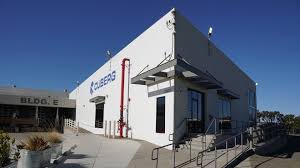
As part of the agreement, Lyten will take over Cuberg’s lease of a 119,000 square foot facility in San Leandro, just 30 minutes from Lyten’s San Jose headquarters, that includes manufacturing, office, and warehouse space. Lyten will acquire Cuberg’s battery cell development and manufacturing equipment and make additional equipment investments to expand the facility’s capacity.
Lyten intends to invest up to $20 million in 2025 as part of an ongoing plan to expand the San Leandro and San Jose facilities to deliver up to 200 MWh per year, at full capacity, of US-manufactured Lithium-Sulfur batteries. San Leandro commercial production is intended to begin in the second half of 2025.
Lyten intends to deliver Lithium-Sulfur cells to defense, drone, micromobility and other energy storage customers from the San Leandro facility. Batteries produced at San Leandro will be sourced by a US materials supply chain, making the batteries US National Defense Appropriations Act (NDAA) and Inflation Reduction Action compliant.
Lyten, which currently produces batteries on its semi-automated pilot line in San Jose, last month announced plans to build a gigafactory in Nevada capable of manufacturing up to 10 GWh of lithium-sulfur batteries annually utilizing a US materials supply chain. The first phase is expected to come online in 2027.
Lyten’s Lithium-Sulfur battery cells feature high energy density, which will enable an up to 40% lighter weight than lithium-ion and 60% lighter weight than lithium iron phosphate (LFP) batteries. Lyten’s cells are fully manufactured in the US and utilize abundantly available local materials, eliminating the need for the mined minerals nickel, cobalt, manganese, and graphite. Lyten’s use of low cost, local materials make Lyten lithium-sulfur a lower cost and higher performing battery than lithium-ion at scale.
Strategic investors in Lyten include Stellantis, FedEx, Honeywell, and the Walbridge Group. Earlier this year, Lyten announced it has partnered with leading defense manufacturer AEVEX Aerospace to demonstrate lithium-sulfur battery powered unmanned air vehicles (UAVs) that are fully compliant with the 2024 National Defense Authorization Act’s (NDAA). Lyten also recently announced that its battery cells were selected for testing aboard the International Space Station (ISS) in 2025, a project funded by the Department of Defense’s Defense Innovation Unit (DIU).
Lyten’s proprietary processes permanently sequester carbon from methane in the form of 3D Graphene and they utilize the tunable supermaterial to develop decarbonizing applications. Lyten is currently commercializing next-generation lithium-sulfur batteries for use in the transportation, aerospace, space, consumer electronics, and energy storage markets; next-generation high strength, low carbon footprint composites; and next-generation sensors that significantly increase detection sensitivity and selectivity for use in environmental, automotive, industrial, health, and supply chain applications.
The company lists more than 490 patents granted or pending and is currently manufacturing Lyten 3D Graphene material and its applications in San Jose, California.